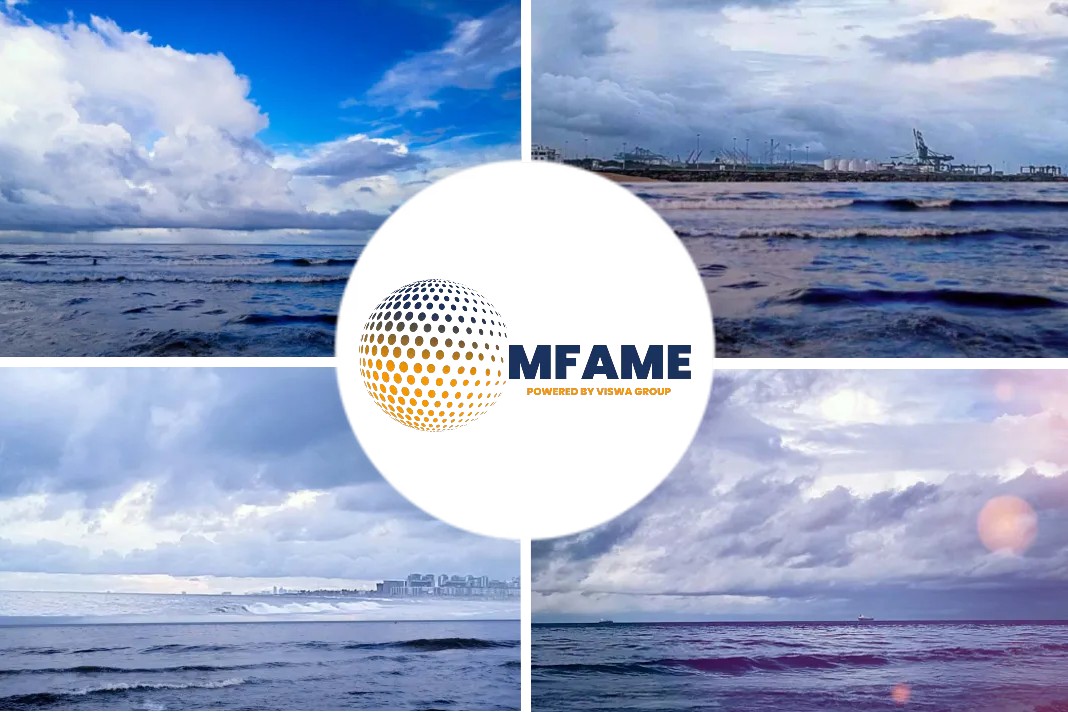The shipping community must factor in and urgently address additional energy needs driven by future fleet growth in order to avoid an ’overshoot’ of the emissions reduction timeline, warned MAN Energy Solutions strategist Anders, reports Riviera.
The fuel mix
In his Shipping enroute to Paris Agreement Overshoot presentation to the media at SMM Hamburg, MAN ES’ principal strategist gave an overview of the company’s expectations of fuel growth, the fuel mix it expected, implications and recommendations.
Mr Kryger said, “Over the next 30 years we expect 60% growth in the fleet. Energy demands will follow: we need 60% more energy to decarbonise the sector by 2050.”
MAN expects the future fuel mix to be led by ammonia, followed by methanol. “As we progress to 2050, a larger share of fuels will be green. In 2030, 80% of methanol and ammonia used will be green,” Mr Kryger said.
As the fleet grows by 60%, MAN expects well-to-wake emissions to increase by approximately 10% over the next decade and then drop.
Reducing emission
“An overshoot of net zero by 2050 appears inevitable, and we need to reduce that quickly. As well as talking a lot about decarbonisation, we need to start talking about this issue right now,” Mr Kryger warned.
He said part of the solution may be methanol and part ammonia and laid out further recommendations going forward to minimise the projected overshoot. Such steps would include increasing the speed of CO2 regulation and/or carbon pricing, with specific international targets aligned with net zero by 2050, a specific newbuilding focus, and a specific focus on the existing fleet which is facing a “massive volume challenge”.
His recommendations also include: making investment opportunities transparent to entice capital investment in green energy production, and driving decarbonisation through partnerships across the shipping vertical.
Mr Kryger summed up, “I call for a sense of urgency from the shipping community to not only talk about the type of decarbonisation, but to also talk about reducing [emissions] overshoot, which is a big issue right now.”
During a panel discussion, Mr Kryger expanded further on what could be done to stop the projected overshoot of reaching net zero emissions by 2050, “We need the intermediate targets to push down the overshoot, one way is by retrofitting the existing fleet and to accelerate the uptake of dual fuel in newbuildings.”
Hapag-Lloyd managing director fleet management Richard von Freiherr, also part of the panel discussion, highlighted decarbonisation challenges from a ship operator’s perspective.
“We have very ambitious goals to decarbonise the fleet… we are looking forward to working on green fuels, the technology is there, but our problem is the sourcing and availability of green fuels. We are interested in doing this as fast as possible and it is a major investment, but it is extremely difficult at the moment as we need green electricity, and we battle with other industries for green electricity. Even if we used all the green electricity, it would not produce the amount of green fuel that we would need in shipping worldwide so there is a lot of homework to be done,” he said.
Did you subscribe to our daily Newsletter?
It’s Free! Click here to Subscribe
Source: Riviera






















